“Gentlemen can never too often [be] requested to recollect the Debates in Congress in the Years 1775 and 1776, when the Treaty with France was first in Contemplation. [...]
It was then said, there is a Balance of Power in Europe. [...] It may be disturbed for a time, by the accidental Removal of a Weight from one Scale to the other; but there will be a continual Effort to restore the Equilibrium. [...]
If We give exclusive priviledges in Trade, or form perpetual Alliances offensive and defensive with the Powers in one Scale, we infallibly make enemies of those in the other. Congress adopted these Principles and this System in its purity.”
~ John Adams to James Warren, March 20, 1783, in Hutson, 13
Early American Diplomacy
Cautious consent to a French alliance
“As Free and Independent States [with] full Power to levy War, conclude Peace, contract Alliances [and] establish Commerce” (Declaration of Independence, July 4, 1776), the United States defined their diplomacy through congressional debates.
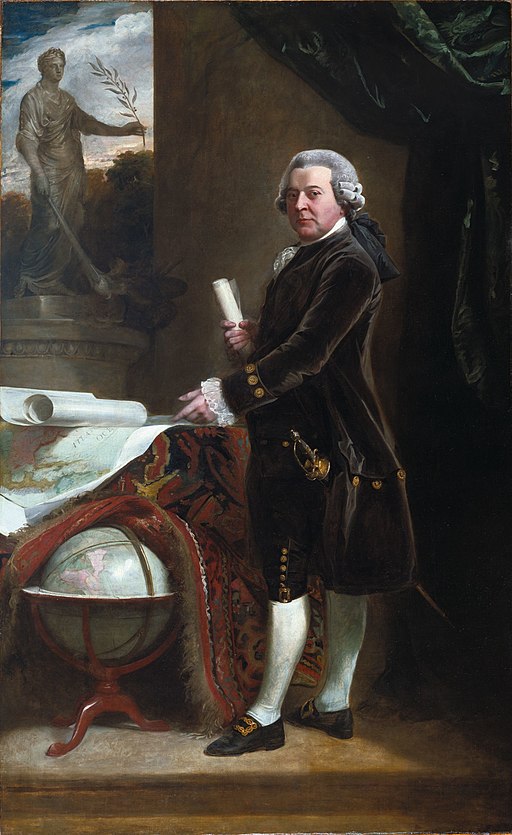
John Adams by John Singleton Copley, 1783, courtesy of Museum of Fine Arts
Massachussets' delegate John Adams drafted a commercial treaty ensuring America’s freedom to trade with all countries. Congress adopted this Model Treaty on July 18, 1776.
“I am not for soliciting any political connection, or military assistance, or indeed, naval from France. I wish for nothing but commerce.”
~ John Adams in Kaplan, 70
Benjamin Franklin also advocated restraint.
“A Virgin State should preserve the Virgin Character, and not go about suitoring for Alliances, but wait with decent Dignity for the applications of others.”
~ Benjamin Franklin to Arthur Lee [recalling a 1776 event], March 21, 1777, Founders Online
Yet, after the Staten Island Peace Conference’s failure made war with Britain inevitable, Franklin, aged 70, headed the delegation to court France’s official support.
Paris: America’s First Diplomatic Mission
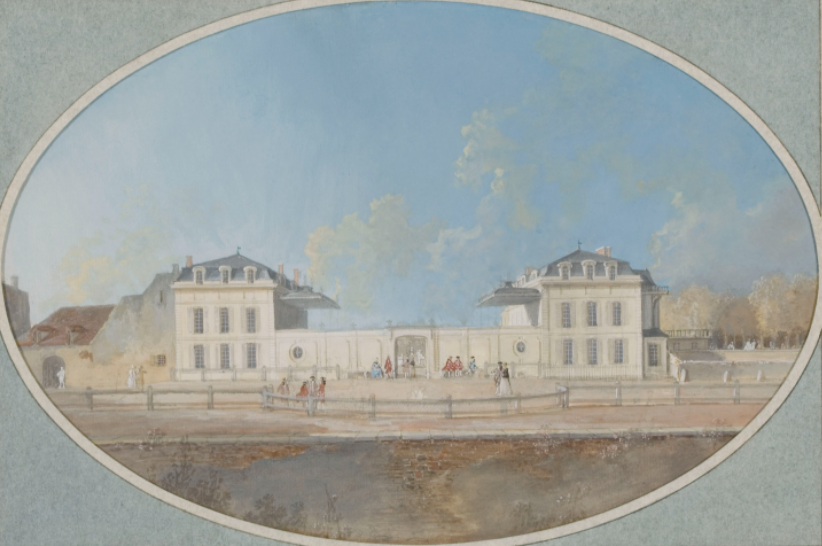
Hôtel de Valentinois [Franklin's house], Passy, 1775-1780, by Alexis Nicolas Pérignon, courtesy of Paris Musée. “America’s first foreign embassy” (Isaacson, 329)
The delegation was warmly welcome and covert assistance continued, but their mission was tough.
Vergennes was temporizing. France’s Navy was not yet rebuilt, and Spain remained non-committal despite the Family Compact binding it to France.
Trans-Atlantic communication was also challenging.
“The losses of the public dispatches to Congress, by accident at sea, by the capture of the enemy, and by the villainy and negligence of those to whose care they were entrusted”
~ Ralph Izard to Benjamin Franklin, April 25, 1778, in Wharton II, 558
“The greatest American diplomat of all times” (Isaacson, 26)
Benjamin Franklin was America’s asset.
“His [Franklin’s] reputation was more universal than that of Leibniz or Newton, Frederick or Voltaire, and his character more beloved and esteemed […].
His name was familiar to government and people, to kings, courtiers, nobility, clergy and philosophers, as well as plebeians, to such a degree that there was scarcely a peasant or a citizen […] who was not familiar with it, and who did not consider him a friend to human kind.”
~ John Adams to Samuel Huntington, President of Congress, August 9, 1780, Founders Online
Franklin cultivated his appearance as a rustic, wise man embodying America’s simplicity, while charming the elite with his wit and French competency.
“Figure me in your mind […] very plainly dress’d, wearing my thin grey strait Hair, that peeps out under my only Coiffure, a fine Fur Cap, which comes down my Forehead almost to my Spectacles. Think how this must appear among the Powder’d Heads of Paris.”
~ Benjamin Franklin to Emma Thompson, February 8, 1777, Franklin Papers
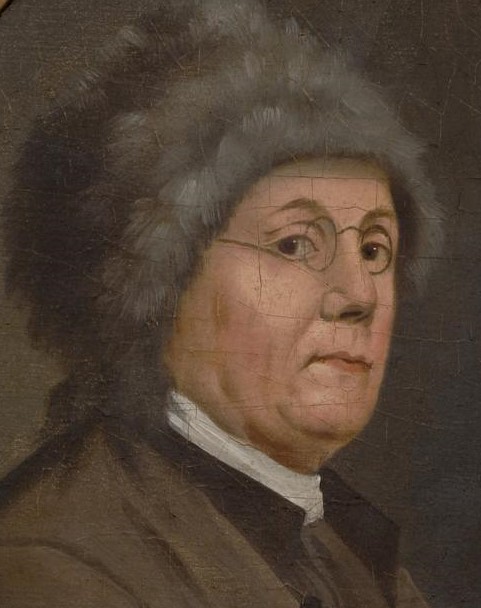
Benjamin Franklin by John Trumbull, 1778, courtesy of Yale University Art Gallery
A passionate chess-player, Franklin had valuable diplomatic skills.
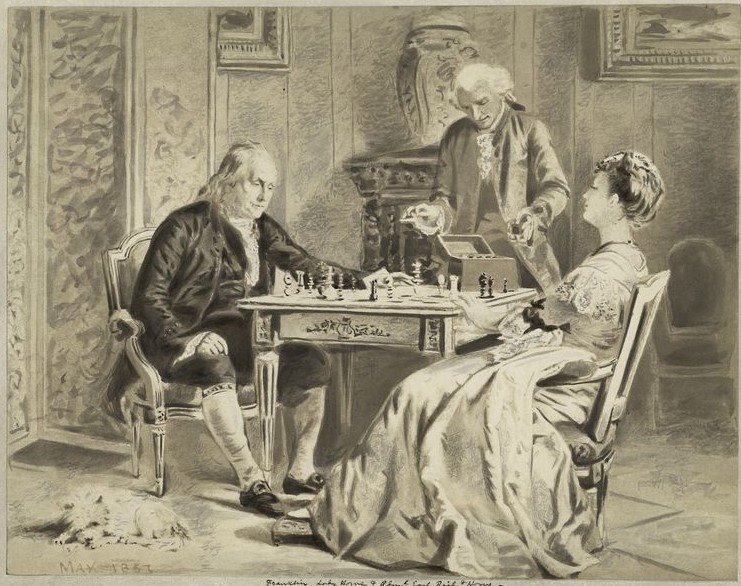
Benjamin Franklin playing chess with Mrs. Howe, 1775, courtesy of New York Public Library
“The game of Chess is not merely an idle amusement. [...] For life is a kind of chess, in which we have often points to gain, and competitors or adversaries to contend with, and in which there is a vast variety of good and ill events, that are, in some degree, the effects of prudence or the want of it.
By playing at chess, then, we may learn: 1. Foresight […]. 2. Circumspection […]. 3. Caution […]. And, lastly, we learn by chess the habit of not being discouraged by present bad appearances in the state of our affairs, the habit of hoping for a favourable change, and that of persevering in the search of resources.”
~ Benjamin Franklin, “The Morals of Chess,” before June 28, 1779, Founders Online
Franklin successfully combined national interest arguments and ideals.
Engagement, at last
The victory at Saratoga (October 17, 1777) with French support demonstrated the viability of America’s cause. To hasten French commitment, Franklin floated the idea of Anglo-American reconciliation.
The French Navy was ready.
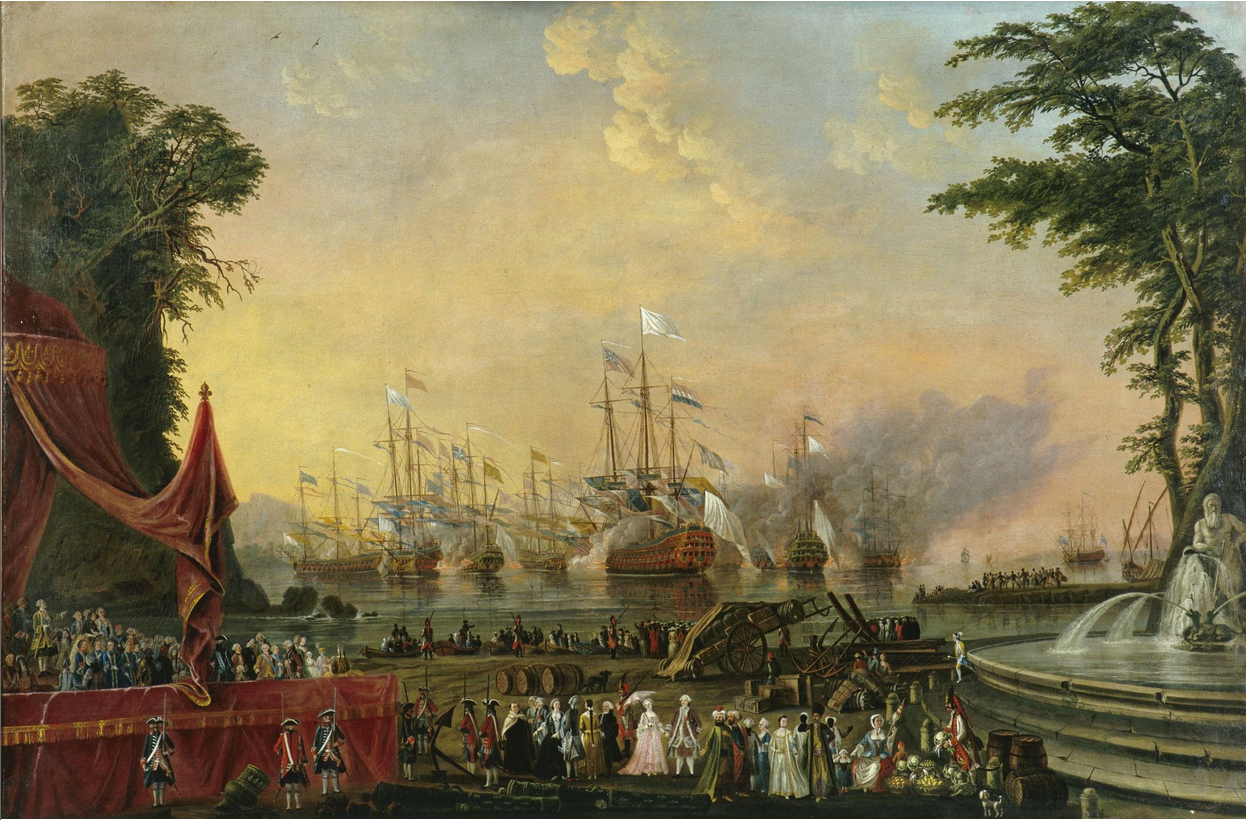
Naval maneuvers at Toulon in July 1777 by Chevalier Flotte de Saint-Joseph, 1777, courtesy of Musée national de la Marine
French leaders now embraced an official alliance with the Americans
“M. Gerard, one of the secretaries, came yesterday to inform us, by order of the king, that after long and full consideration of our affairs and propositions in council it was decided, and his majesty was determined, to acknowledge our independence, and make treaty with us of amity and commerce […]
We answered, that […] he [the king] would find us faithful and firm allies, and we wished, with his majesty, that the amity between the two nations might be eternal.”
~ Benjamin Franklin, Silas Deane, and Arthur Lee to the Committee of Foreign Affairs, December 18, 1777, in Wharton, II, 452-4